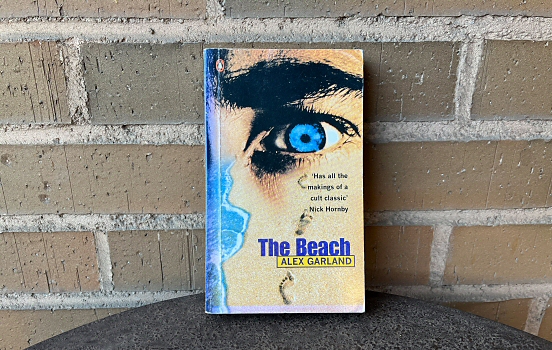The debut novel by Alex Garland in 1996 is probably one of the most well-known items on the traveler’s book shelf. It used to be seen everywhere in hostels, cafés and airports.
One of the reasons for the success was the movie adaptation of the novel, featuring Leonardo DiCaprio as the backpacker Richard trying to find the perfect beach. While the book is a fan favorite for backpackers, the film is not quite living up to the expectations. But the first half is quite good at depicting the feeling of backpacking in the early 2000s to a time-typical soundtrack by Moby.

At the turn of the millennium, Thailand was arguably the epicenter of backpacker activities. These were the good old backpacking days before the area got too exploited. Many people including me adopted the “full-on dirtbag travel mode” as author Rolf Potts called it, roaming from one spot to the next by using crowded buses or sitting on open truck cargo holds with dirty backpacks.
“There’s no way you can keep it out of the Lonely Planet, and once that happens, it’s countdown to doomsday.”
— Alex Garland, The Beach (1996)
While heavily shadowed by the movie, the book is quite interesting in itself. The initially naive tourist epiphany is gradually turned into something more sinister, resembling a pop culture version of the 1954 classic Lord of the Flies. I think it does a pretty good job depicting the hypocrisies of Westerners bringing their own cultural values into a foreign setting, clashing with the harsh reality of the locals. In essence, it’s the search in itself that ultimately ruins that perfect beach.
Ironically, the book and the movie played a huge part in the allure, as people arrived in droves looking for their perfect beach. This made the book into a sort of self-fulfilling prophecy, as the tourist hordes contributed to the pollution and destruction of the coral reefs in the area.
 Maya Bay, as I found it in 2003.
Maya Bay, as I found it in 2003.
Speaking of pop culture, the novel feels quite stuck in its time period, and I wonder how readers will react to it in a few decades time. The characters are a bit dull, but I can forgive that since the main point of the novel is more about communicating the message anyway.
Comments
No comments yet.
Leave a reply